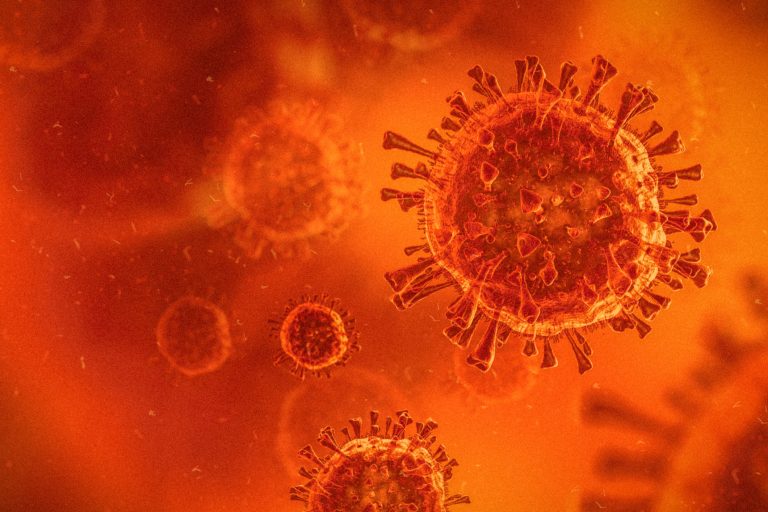
Researchers at Boston University have created human induced pluripotent stem cells (iPSCs)-derived intestinal organoids that can be infected with SARS-CoV-2. How the virus affects the gut, the researchers say, can potentially serve as a way to evaluate novel therapeutics for COVID-19.
They report that SARS-CoV-2 productively infects both proximally—and distally—patterned human iPSC-derived intestinal organoids (HIOs), leading to the release of infectious viral particles while stimulating a detectable transcriptomic response. That includes a significant upregulation of interferon-related genes that appear to be conserved across multiple epithelial cell types. These findings point to a potential inflammatory epithelial-specific signature that may contribute to both COVID-19s multisystemic nature and its highly variable clinical presentation.
The researchers created two iPSC-derived organoid models of GI SARS-CoV-2 infection using a novel, mesenchyme-free directed differentiation protocol that generates regionally patterned proximal (small intestinal) and colonic organoids from human iPSCs using a CDX2-eGFP reporter iPSC line (BU1CG). They report that these iPSC-derived HIOs have no mesenchymal cells, but contain a variety of cell types found in the intestinal epithelium, including goblet, enteroendocrine, and Paneth cells. The HOIs were also shown to be useful in modeling other diseases of the GI epithelium.
The team was led by Gustavo Mostoslavsky, M.D., Ph.D., at the BU/BMC Center for Regenerative Medicine (CReM) and Elke Mühlberger, PhD, from the National Emerging Infectious Diseases Laboratories (NEIDL) at Boston University. These findings appear online in the journal Stem Cell Reports. https://www.cell.com/stem-cell-reports/fulltext/S2213-6711(21)00099-0
SARS-CoV-2 affects many parts of the body. Although the primary manifestations of COVID-19 involve the respiratory system, gastrointestinal effects may play a critical role in both disease severity and transmission. For example, the researchers write, in one study it was shown that up to 53% of hospitalized patients tested positive for SARS-CoV-2 RNA in stool, and 23% of these patients continued to test positive for SARS-CoV-2 RNA in stool despite having negative respiratory samples (Xiao et al. 2020).
The BU researchers cite multiple reports that adult stem cell (ASC)-derived intestinal organoids can be productively infected by SARS-CoV-2. Analysis of the host response in these organoids has revealed the importance of type I and III interferon signaling in controlling viral replication and spread. This process has been previously shown to play a role in intestinal epithelial response to viral infection, including other coronaviruses such as SARS-CoV-1.
“The usefulness of these systems is hindered,” the researchers write, “however, by the limited availability of the primary tissue from which they are generated.” They propose that human iPSC-derived proximal intestinal and colonic organoids represent “a potentially powerful tool to study SARS-CoV-2 intestinal infection, since they are both amenable to genetic manipulation and infinitely expandable, making them particularly useful for high-throughput drug screening applications, as has been recently reported.”
“Human induced pluripotent stem cell derived intestinal organoids represent an inexhaustible cellular resource that could serve as a valuable tool to study SARS-CoV-2, as well as other intestinal viruses that infect the intestinal epithelium,” explained corresponding author Mostoslavsky, associate professor of microbiology at Boston University School of Medicine (BUSM) and co-director of the CReM.
The iPSC cells were first differentiated into colonic and small intestine 3D organoids. The organoids were then passed along to the Mühlberger lab at the NEIDL where they were infected with SARS-CoV-2 and then analyzed by staining against markers, using electron microscopy and by RNA-sequencing.
“Our findings suggests that different epithelial tissues (such as the lung and the gut) react in similar manner to SARS-CoV-2 infection and therefore can help identify common mechanisms of disease that can be targeted by drugs,” added Mühlberger, director of Integrated Science Services at the NEIDL and professor of microbiology at BUSM.













